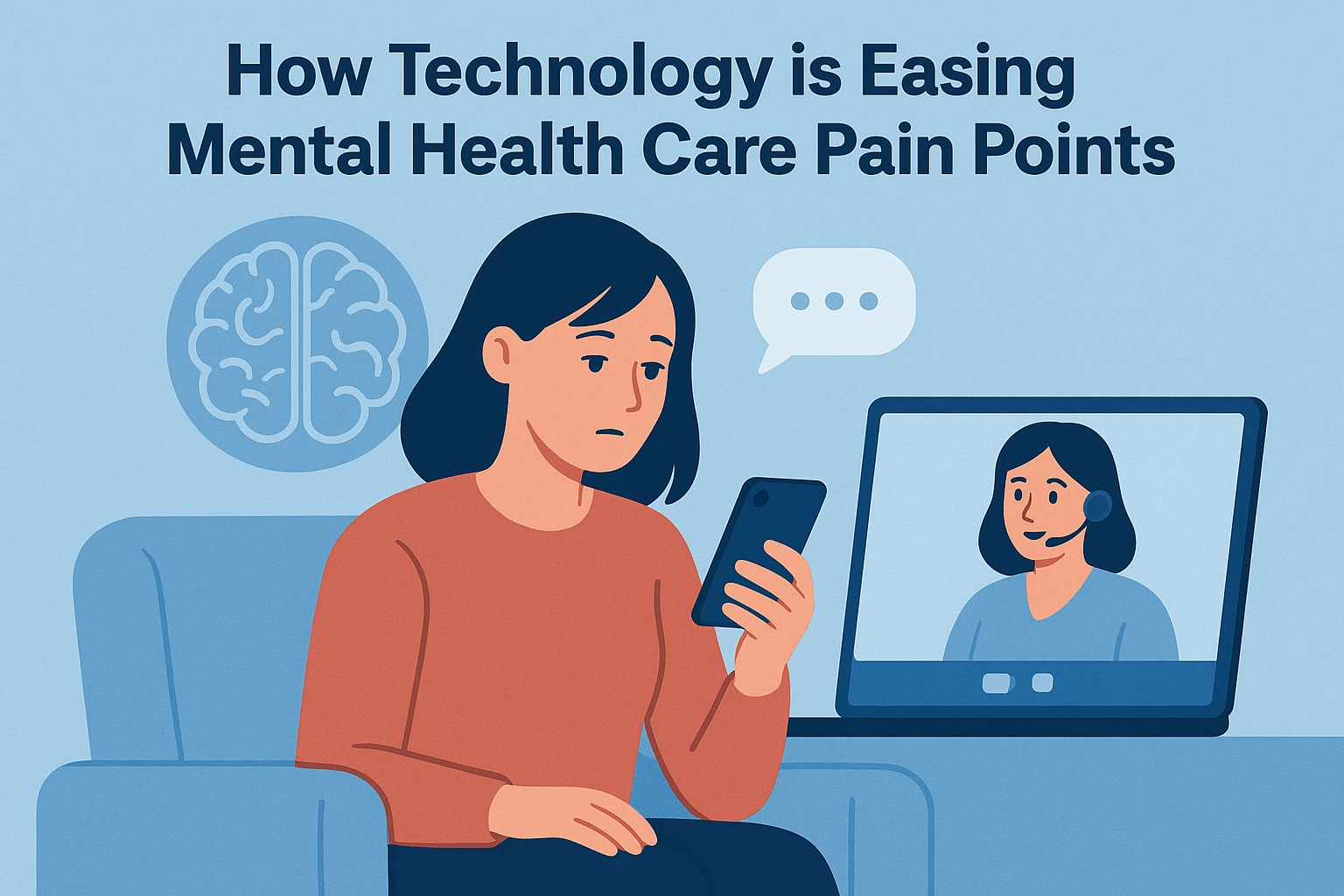How technology is easing mental health care pain points – Employee Benefit News
How Technology is Easing Mental Health Care Pain Points
Surprisingly, Innovative digital solutions are transforming mental health services, making them more accessible and effective in today’s fast-paced world.
Context
With the rising prevalence of mental health issues globally, particularly exacerbated by the COVID-19 pandemic, the healthcare system faces significant challenges in providing timely and effective support. According to the World Health Organization (WHO), one in eight people worldwide live with a mental disorder, but only a fraction receives proper care due to stigma, lack of resources, or geographical barriers. This pressing situation has catalyzed an increase in technological innovations aimed at bridging these gaps. Emerging tools such as teletherapy platforms, mental health apps, and AI-driven diagnostics are beginning to redefine traditional approaches to mental wellness.
Latest Developments
The landscape of mental health care is rapidly evolving thanks to advancements in technology. Telehealth services have gained traction, allowing patients to connect with licensed therapists from their homes via secure video calls. As reported by various industry experts, usage statistics reveal that over 70% of users find teletherapy just as beneficial—if not more so—than face-to-face consultations. Furthermore, mobile applications designed for mood tracking and guided meditation are seeing increased downloads; research indicates that mindfulness apps can lead to reduced anxiety levels among users.
Interestingly, large employers are integrating tech-based wellness programs into their employee benefits packages. Companies like Google and Microsoft invest significantly in providing employees with access to sophisticated psychological support tools. These initiatives not only enhance individual well-being but also contribute positively towards overall workplace productivity.
Impact
The implications of this technological integration into mental health care systems are profound. Enhanced accessibility means that underserved populations—whether due to geographical isolation or socioeconomic status—can receive vital support. Additionally, data collected from these digital platforms can offer invaluable insights for researchers and policymakers aiming to understand trends in mental health issues on a broader scale.
However, there remains concern about privacy and security regarding patient information shared online. Regulatory frameworks need to adapt quickly to ensure that user data remains protected while enabling innovation in treatment options.
Moreover, community-level initiatives promoting awareness around these digital solutions play an essential role in combating stigma associated with seeking help for mental health problems. Local campaigns often utilize social media platforms supported by webinars or virtual workshops hosted by professionals who advocate for regular wellness check-ins—a practice made simpler through recent tech developments.
What to Watch
Looking ahead, several key trends could further shape the landscape of mental health technology:
1. **AI Integration**: The use of artificial intelligence offers potential enhancements in diagnosing conditions faster than traditional methods while tailoring interventions specifically suited for individuals’ needs.
2. **Wearable Devices**: A growth in wearable technology can provide continuous monitoring capabilities for individuals managing conditions such as anxiety or depression through biometric feedback mechanisms.
3. **Policy Changes**: Potential shifts in healthcare policies might encourage greater funding for technological innovations within mental health sectors.
4. **Increased Collaboration**: Partnerships between tech companies and healthcare providers will likely expand the scope and reach of existing services while driving new ideas forward.
As companies fine-tune these advanced offerings based on user feedback—the future looks promising yet demands vigilance regarding ethical considerations surrounding patient engagement via technology.
Conclusion
Technology is undeniably playing a pivotal role in alleviating some critical pain points associated with accessing mental health care today. From remote therapy sessions breaking down geographical barriers to innovative applications guiding personal self-care practices—we stand at the brink of a transformative era where comprehensive support is no longer confined within physical office walls but extends seamlessly into daily life through our devices.
Editor’s note: The integration of technology into mental health services not only enhances accessibility but also underscores the importance of evolving our approaches toward holistic wellness.
Sources
- How Technology is Easing Mental Health Care Pain Points – Employee Benefit News
- NFL, Microsoft Continue Partnership to Bring More Tech to the Sidelines – Sports Video Group
- Disney Adds 2 New EVP’s To Its Digital Tools Leadership Team – What’s On Disney Plus
Share this content:




